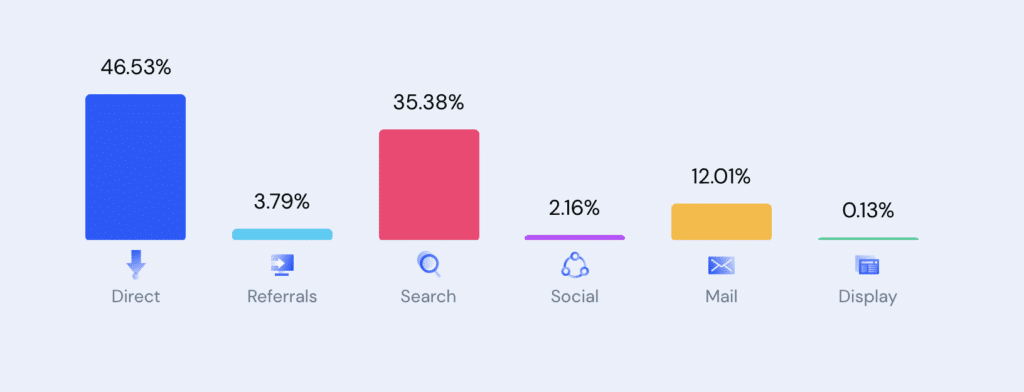Every morning in Africa, a gazelle wakes up. It knows it must run faster than the fastest lion or be killed. Every morning a lion wakes up. It knows it must outrun the slowest gazelle or starve to death.
Every morning across the world, a founder wakes up. They’ll receive an email from an investor recommending reducing dependency on some platform. Every morning an investor wakes up. They know they’ll have to invest in some company with strong platform dependency.
As much as everyone would love not to depend on someone’s else platform, the reality is that there’s only one way to have zero external dependencies: becoming so big that you are a platform.
And realistically, that’s something that won’t happen to most of us.
Can you name some really successful companies that don’t have any dependencies?
Even if we analyze the top 1%, it’s hard to find them. Take HubSpot.
Extremely successful public company. The gem for all the inbound marketing enthusiasts. This is where their traffic comes from:

Sure, they have a lot of direct traffic, which is great, but likely is largely composed of customers visiting their site to log in.
Remove direct traffic, and there you go: A huge dependency on Google: Search, Display, Mail (through Gmail).
An algorithm change could drastically shake their business. Same with Gmail flagging their email as spam.
Every mobile app is at Google and Apple’s mercy.
Sprinklr, SproutSocial, Hootsuite, Buffer, and many others depend on Facebook & Twitter API changes.
Almost every tool for the sales team relies on Salesforce’s API.
The list is almost endless. And let’s be honest, there’s nothing you can do about it.
Don’t overthink your platform dependencies.
Be aware of them, try to understand how the platform you rely on defines success, and align your product as much as possible. That’s the best bet you can make to derisk platform dependencies.
Zynga, as an example, didn’t align with Facebook’s definition of success when they built their success on flooding everyone with Farmville’s notifications. And Facebook reacted by changing its API and policies.
For most companies, reducing platform-related risks by expanding on even more platforms it’s often not possible or too expensive to accomplish.
Try instead to focus on the platform that is already working for you today and align your success with its success.
